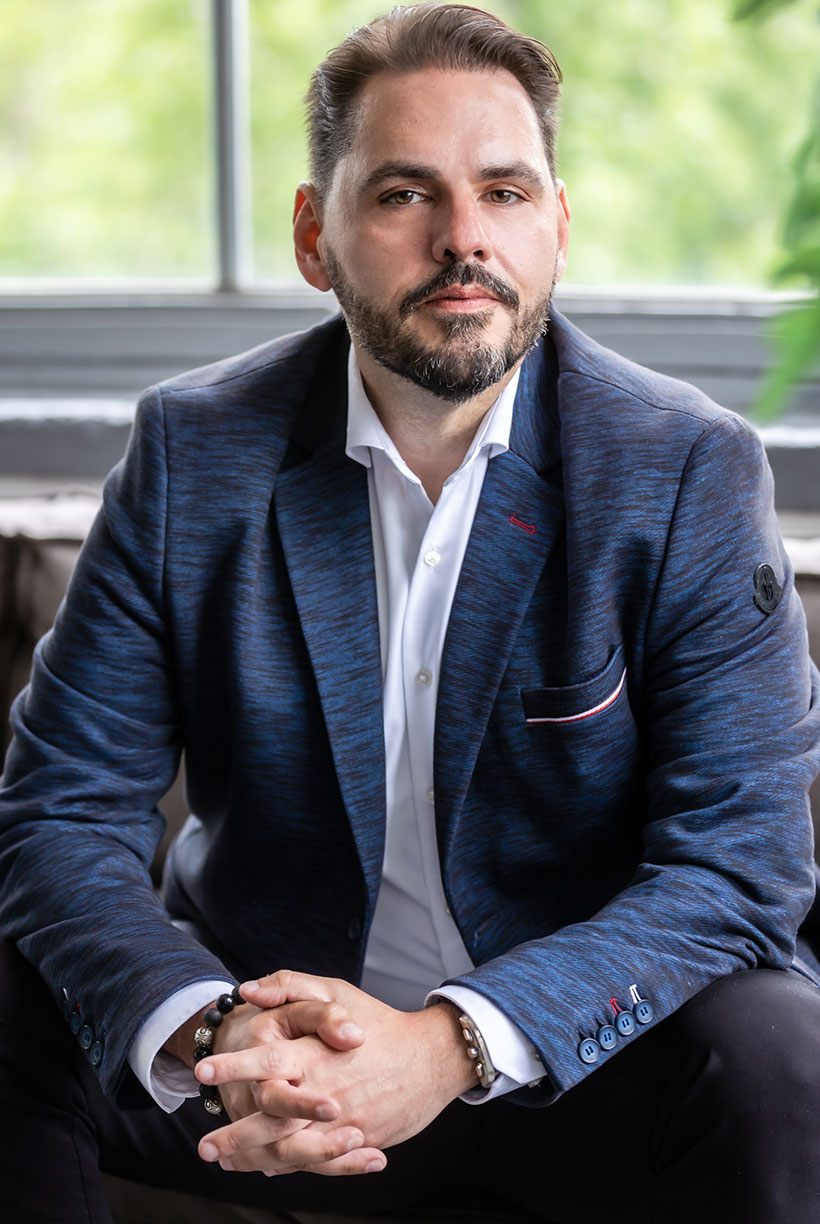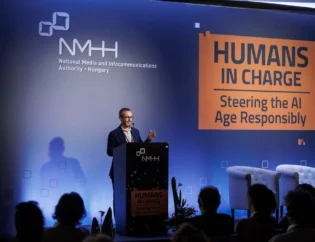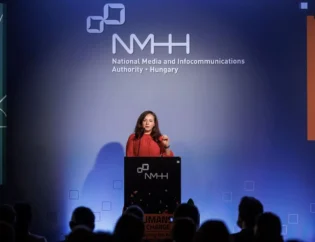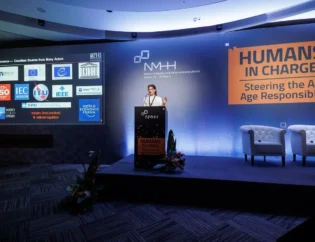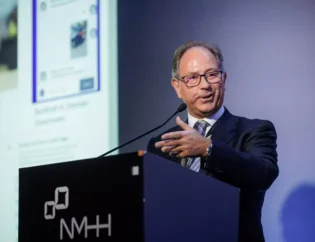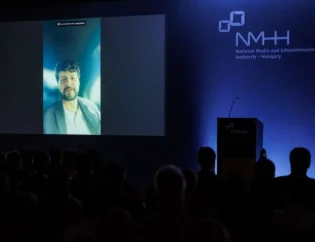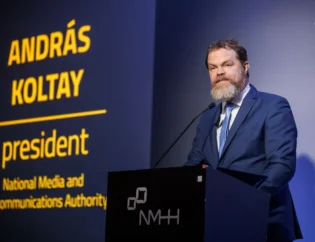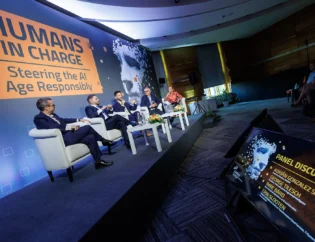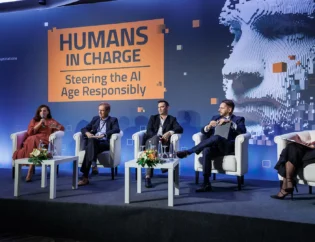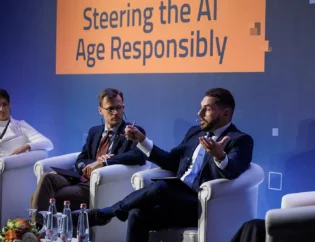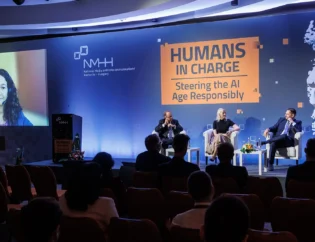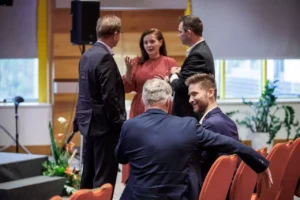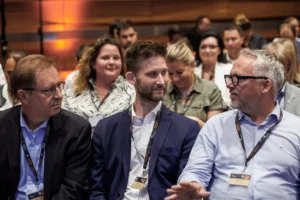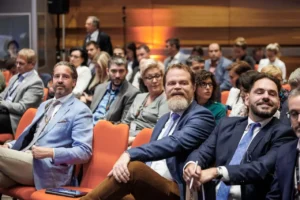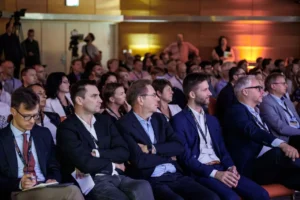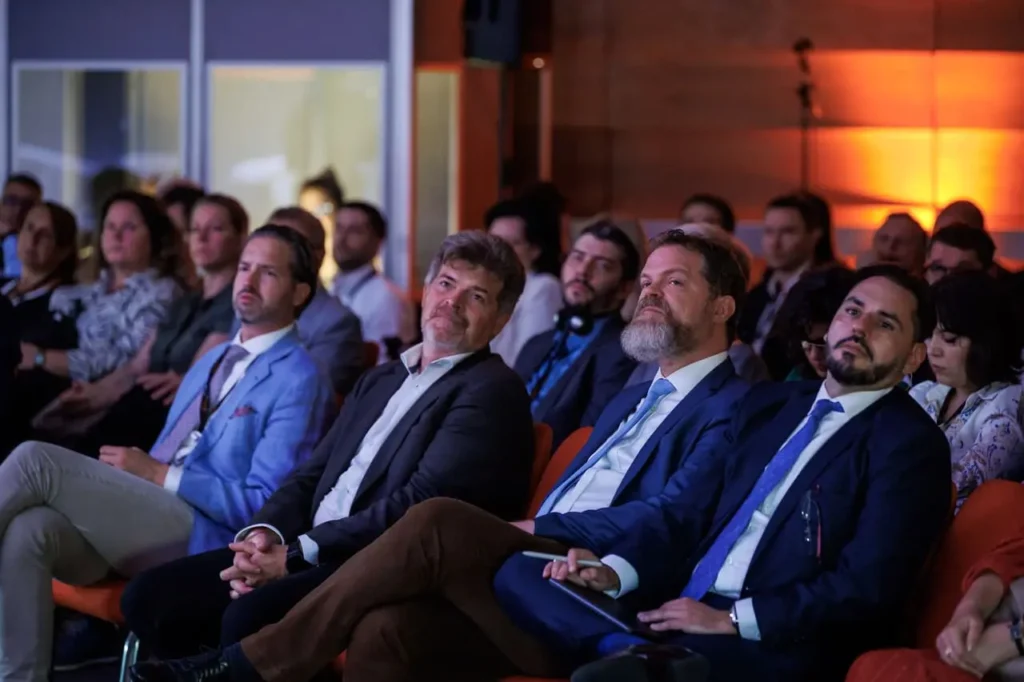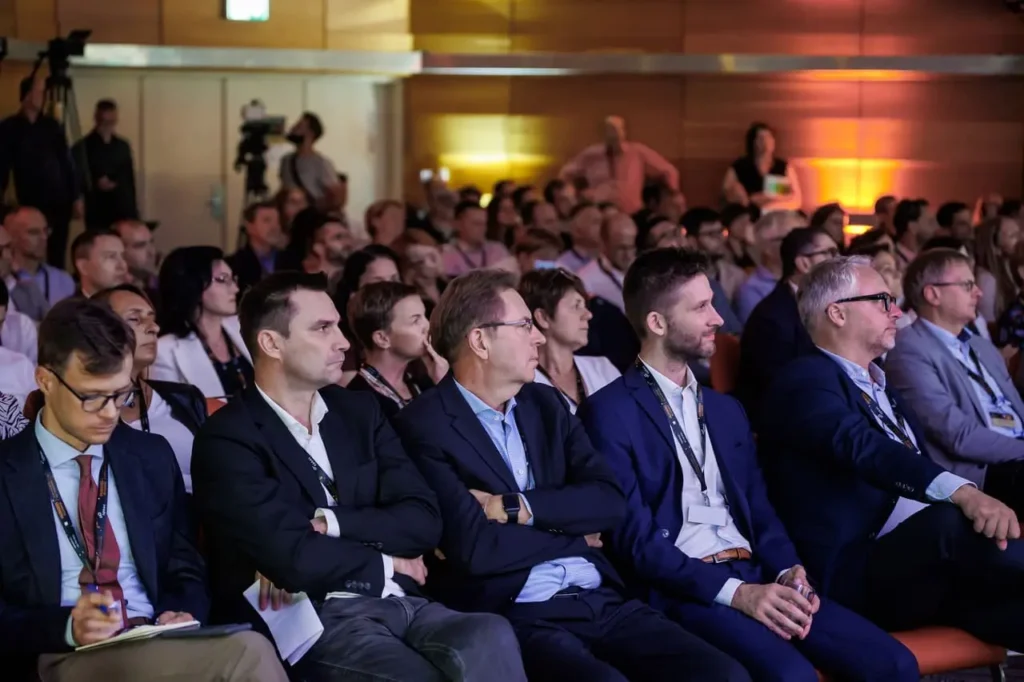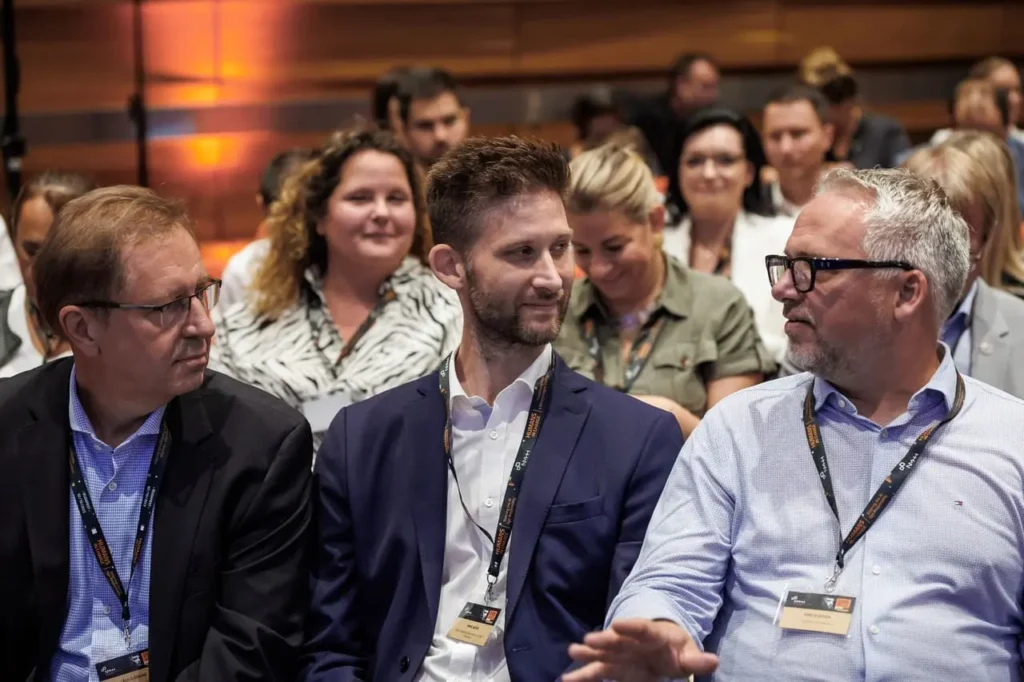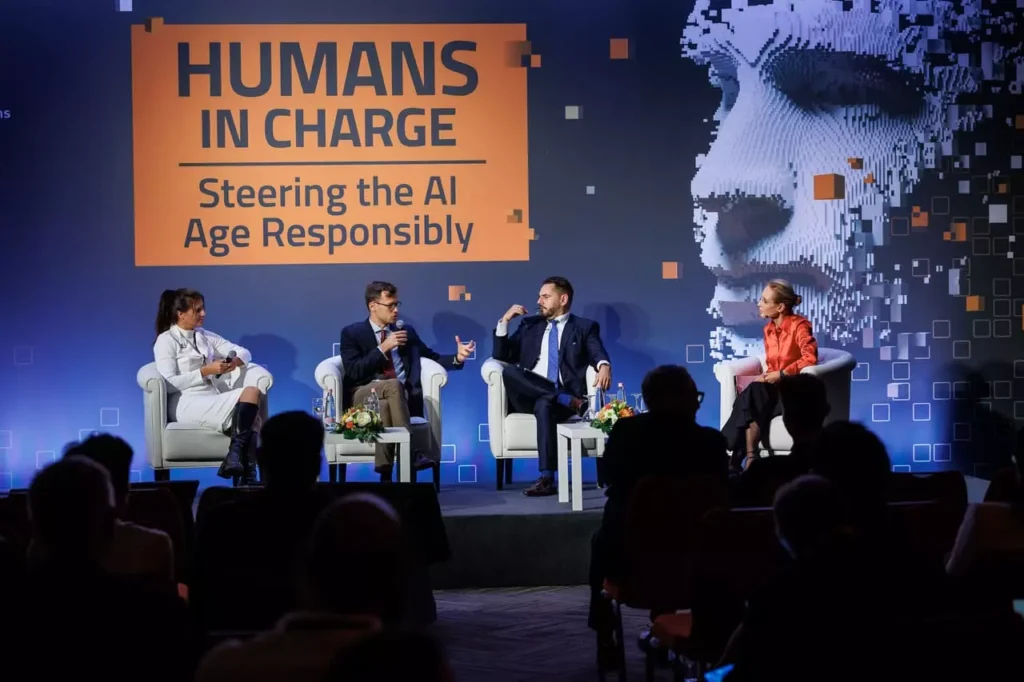George Tilesch concluded the conference by stressing the convergence of technology, regulation and social inclusion
George Tilesch, an international expert in the field and founding president of the PHI Institute for Augmented Intelligence, expressed his hope in his closing speech at the conference “Humans in Charge – Steering the AI Age Responsibly” that the event contributed to Hungary’s preparation for the upcoming presidency of the European Union which, he believed, would have the AI Act and its implementation as one of its key priorities.
Get into accelerator mode
“Tonight we talked a lot about regulation, which is a key factor. A very important tool in our toolkit, but only one. As long as we keep thinking in a technological paradigm where there is no convergence between the pace of technology, regulation and social inclusion, we will always be lagging behind,” he noted.
“We have been honoured by the presence of people, great minds who are working on this convergence at a global level and have the appropriate expertise. We’re very grateful to them for coming to Budapest and honouring us with their presence, for enriching us with their thoughts and sharing their best practices.”
He added that he hoped that the good practices presented and the mindset of the conference speakers would enable us to get into accelerator mode.
The machinery is in motion
With this conference, “we had the obvious intention to help Hungary prepare for the presidency of the Council of the EU in 2024 when the AI Act and its implementation will feature as one of the most important issues. We wanted to make sure that we were in touch with the leading thinkers who are actually not only aware of what happened but also of what is going to happen. So let’s get out of reactive mode and switch to proactive mode. We have done our best tonight”, stressed George Tilesch, and concluded his speech in the hope that this was not the first and the last time such an event took place.
The Hungarian expert living in America closed his speech saying “I hope that we have set the machinery in motion and made sure that people assume responsible leadership”.
This speaker
George Tilesch
Founder & President, Phi Institute for Augmented Intelligence
Dr. George A. Tilesch is a senior global innovation and AI expert, executive, and consultant, primarily in the transatlantic space.
For over 20 years, George has been active as a cross-sector and cross-industry conduit between AI ecosystems worldwide and as a trusted advisor for world leaders.
As a C-suite advisor, researcher, convener, keynote speaker, and guest lecturer at major universities, George is headquartered in Silicon Valley and circling the globe in pursuit of delivering on PHI Institute’s mission.
More speakers


Axente



Erdelyi






Misuraca



Kriisa



Tilesch



Drajkó



Porkoláb



Halmos



Slooten



Bárd



Juhász



Benifei



